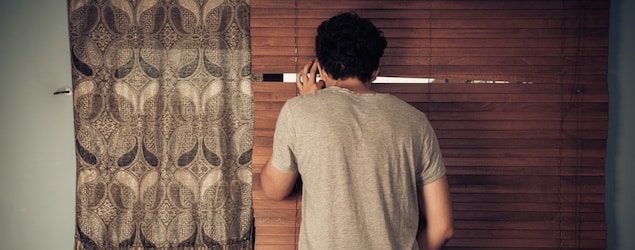The Nosy Neighbor Society

A friend of mine recently passed along this story from the satirical newspaper The Onion, which echoes a bunch of other stories (justly) poking fun at conservatives who are up in arms about the way poor people are spending their money.
Woman A Leading Authority On What Shouldn’t Be In Poor People’s Grocery Carts
NORTHAMPTON, MA—With her remarkable ability to determine exactly how others should be allocating their limited resources for food, local woman Carol Gaither is considered to be one of the foremost authorities on what poor people should and should not have in their grocery carts, sources said Thursday.
Read the whole thing — you’ll get some good laughs. But there is also a serious lesson here: the welfare state makes our personal decisions other people’s business.
Prior to the Great Depression, Americans wanted nothing to do with the dole, and even during the Depression most of them went to extraordinary lengths to avoid taking government handouts. There were two basic reasons for this. The first was a conviction that each of us is responsible for our own life. But the second was a recognition that going on the dole meant submitting yourself to public inspection. Here’s how Eli Ginzberg put it in his 1943 book Unemployed:
These people knew from the experience of relatives and friends that Relief was not solely a matter of asking. Once a person applied, his past, present, and even his future were subject to the scrutiny and control of officials in the Department of Welfare. Being subject to such control was not easy to contemplate and things were not made any easier when they had to fill out detailed blanks, go to the office for lengthy interviews, and permit investigators to enter their home. After all, they had always been self-supporting and though their incomes had never been large, they had been masters of their own fate. They decided where to live, what to eat, what clothes to buy. Now others would make these decisions for them.
They became still more uneasy when, on making application, they were forced to answer many intimate questions which they’d never discussed with relatives, and certainly not with strangers. However, most persons realized that the public authorities could not hand out money until they were in possession of these facts. Upsetting as was the procedure, most clients felt that the inquiries were justified.
Government agents in those days visited people’s homes, looking for signs that they were working or otherwise were too well off to receive government aid. “Is that a new dress you’re wearing?” “Is your husband out looking for a job? Give me the phone number and address so I can make sure.” “You really shouldn’t be having another child, dear.” Inquiries like this were common. Ultimately, however, Americans came to view this sort of humiliation as unacceptable. Handouts became easier and easier to get.
The welfare state puts taxpayers in an impossible situation. Either they allow the government to spend their dollars without any oversight, leaving them no means of knowing whether their money is being well spent – or they are forced to look into the personal choices of other Americans and pass judgment regarding which will be allowed and which forbidden. Either alternative is distasteful.
Today’s conservatives deserve to be mocked for publicly railing against poor people who choose to spend a few extra dollars on small pleasures, which after all are some of the only pleasures they can afford.
But the left has no business doing the mocking. It is the programs they champion that have opened up the lives of low-income Americans to public inspection. It takes a lot of gall for the left to advocate forcing people to buy government-approved health insurance plans, to virtually ban smoking, to beg the government to tell us what foods we’re allowed to eat and what beverages were allowed to drink – and then to lecture conservatives on not sticking their noses in others’ business.
Welcome to Newman’s America.When the President says, “We’re all in this together,” this is what he means. He means that, in the welfare state he advocates, we’re all dependent on society and therefore we’re all answerable to society.



